#transracialism
Video
“Can You Identify As ‘Transracial’?”
#would you rather#channel 4#channel 4 documentaries#transracialism#transracial#white privilege#oli london#black people#black women#poc#people of color#cultural appropriation#culture vulture#tv series#uk#british#white people#korean#asian culture#offensive#plastic surgery#rachel dolezal#bts#video#sbrown82
38 notes
·
View notes
Note
What is your opinion on transracial people?
From what I've read, it's hard to tell what they're actually doing, so this is probably going to resemble more of a stream of thought than any solid conclusions.
-
There seems to be two types.
Firstly, there's people who just simply lie. Skin tone is no indication of anything; people with strong European ancestry vary from very pale to quite tanned, while those with strong African ancestry vary from very dark to, again, a more tanned complexion. There's similar variability across other regions like South America and Asia.
Something of a cultural trope reflective of the pre- and nascent-Civil Rights Era is the black parents who "lucked out" and had a "white passing" child, who has the benefit of attending the "white" school, and the drama then spins off from there.
More recently, there's been a number of people passing themselves off as black or native American. Rachel Dolezal, for example.
It's hard not to notice that they wouldn't do this if not for access to some tangible benefit, one might even say "privilege." Henry Rogers (aka Ibram X. Kendi) hilariously blew up his entire career hustle with one tweet over this same topic.
It's a reflection of opportunity, taken advantage of by opportunists, in order to obtain prestige, notability, influence, or gain access to benefits not normally afforded to them. The question one might well ask is why these separate benefits exist in the first place, which might give someone reason to seek access to them.
-
Then there's the people who "Identify" out of one category into another. We should note, of course, that the social constructivists don't acknowledge race categories themselves as a social construct, as humans are all one species, just different tones and shades of brown.
I don't really understand whether these people are asserting a dysphoric or dysmorphic phenomenon in effect here, or something more like cultural affinity.
-
At face value, it seems like they're saying that the way I feel about myself, the way I experience life and the world doesn't correspond to the way anyone with my skin color feels about themselves/experiences life/experiences the world, and it corresponds only to the way someone with a different color skin feels about themselves/experiences life/experiences the world.
How could anyone ever claim to know that? Other than through the usual woke mainstay of gross stereotypes? The collectivist, intersectional nonsense that we see permeating their beliefs, that we experience the world through categories, and everyone in a category shares the same experience or shared identity. Or is supposed to.
How could you ever pretend to know that what you feel/experience as a black person is not the way black people feel/experience, but the way white people feel/experience? Or vice versa? What is the black identity? What is the white identity? Or brown? Or mixed?
What happened to the lessons of every family sitcom from the 90s?

This stereotyping - and that's what it is - and hivemind mentality is the natural result of Kendiism/DiAngeloism and the ideologies of all those race grifters being shoved down our throats. And being taken as anything more than an insane, racist joke.
With that in mind, it's conceivable that you could be a black person who has been told they'll always be oppressed and that your success is dependent on white people using their "privilege" on your behalf, because you can't, or lowering standards because it's assumed you can't meet them, feels disconnected from this and might identify more strongly with the group with more agency, the one that's empowered rather than disempowered. Or you could be a white person who has been told that "all white people are racist," are responsible for all the evil in the world and they have to just sit there in their discomfort and apologize and feel bad for crimes they didn't commit and invisible forces they can't see, who feels similarly detached from this group collective.
Are any of these things actually true? No, they're not. But if you hear them often enough, if you're dragged into "diversity, equity and inclusion" struggle sessions enough, if you're surrounded by it, admonished to believe it as a moral imperative, if your school, college, place of work and even government are adopting it, you might just develop something comparable to dysphoria in the pseudo-reality you've succumbed to. I can totally see that as a possibility.
These ideologies deliberately don't provide an individual "out." "Well, I'm not oppressed." That's because you have internalized oppression. "I'm not a racist." That denial is fragility and proves you're a racist. You might find yourself thinking that you don't see yourself in the purported "black identity" or "white identity" and you feel your skin color doesn't match your how you're supposed to "identify."
Of course, the mistake would be in accepting this ideological crap in the first place, rather than sticking with your individuality and telling the woke neoracists to fuck the hell off.
-
As I said, the other way I can see this is as cultural affinity. That certain forms of expression, creativity, traditions, etc, resonate beyond racial lines.
The problem is that we are reliably scolded that some people "own" culture, and being so presumptuous as to join in is "cultural appropriation."
Culture is something you do. Not something you own or have or possess. Without people to do it, any given culture ceases. It's traditions, customs, norms, from cooking food to all those little shortcuts in interactions. There's body language, sounds - not even entire words - that Americans can invoke or share that other Americans instinctively understand which non-Americans would miss or not comprehend. Those things don't travel by skin color or through DNA.
There's a man I work with who is from and in South Africa. He grew up there, did compulsory military service, etc. He’s white. He's more culturally "African" - to the extent "African" is even a culture - than Oprah Winfrey.
Any black American who's the descendant of African slaves is culturally American, and no more culturally Zimbabwean than they are culturally Martian. They grew up in America, surrounded by American traditions, customs, norms. They may choose to embrace their ancestral Zimbabwean culture, but that in itself is an American participating in Zimbabwean culture, not a culture they already have a "right" to.
Since it’s something you participate in, culture changes all the time, because what people do and how they do it changes. It’s not a defined box of someone’s personal preconceptions that must be protected at all costs. When people discard a tradition, it’s not for you to decide that they shouldn’t, or that it ruins their culture, or that their culture has been destroyed by not complying with your expectations.
Nobody owns culture.
Not only do cultures change over time, but one of the key points about culture is that it’s shared and adopts parts of other cultures it encounters. Cultures mash together, they split apart, they change and evolve. Remember the Japanese tea party firestorm?
https://cheshireinthemiddle.tumblr.com/post/131407267302
And to top it off, basically 80 percent of japanese customs, traditions, and food, came from other countries. Japanese is an integration of different cultures, like america. Japan takes influences from places like korea, china, russia, and europe. If japan stuck to itself, there would be no tempura, japanese tea, tea ceremonies, kabuki, japanese bread, japanese curry, j- pop, anime, cars, or modern fishing techniques.
Then:
When you tell people they can only experience things ‘meant for their race’, it totally smacks of segregation to me and I can’t stand it. As someone who (obviously) loves Japan, I say let people learn about it, let people experience it, let people appreciate it. You don’t have to know every single thing about a culture to enjoy it.
That’s what humanity does. It stops living in isolated boxes and thinking it got everything right the first time, and instead interacts and learns from each other.
So the mistake in the sense of "identifying with" culture (and as I said at the outset, I have trouble with the whole "identify as/with" thing), or having an affinity for or interest in a different culture, is a misunderstanding, or perhaps being misled by ideologues, that you must belong to a particular category in order to participate in a particular culture. You don't.
Anyone who tells you otherwise is probably a racist, viewing it as "that's what those people do, that's what they do." Classic racists view that culture as a bad thing not to be participated in by the "we", while neoracists view it as a virtuous, holy thing, and to be protected from the "we".
All you should do is have sincerity. That's it. Like learning a new language, you're probably going to get it wrong sometimes, but despite the scolding of ideologues, most people who see you putting in the effort to learn about and participate in their culture will be happy to see you making the effort.
-
Here's where things get interesting. There's arguably a better case for identifying as a different (perceived) "race" than a different gender.
The average black American has about 20% European ancestry, and about 5% Native American ancestry. "Race" is a spectrum. On the other hand, every human is either male or female.
Surely it's no more unreasonable for an ostensibly "black" person to embrace their 15% white Scottish heritage than to embrace their 15% black Ghanan heritage. Why can't you choose which bits of yourself to "identify" as/with? Why can someone identify as "cupcakegender" (I shit you not 🤡) and demand you use their pronouns, but someone else can't "identify with" her black great-grandmother? One of these is actually real.
-
Personally, I don't see the value in being anything other than what you are. I don't "identify" with or as my skin color, it's just what I have. I think the reasons I've been able to find for why people might identify as transracial are inherently flawed, reflecting flawed thinking in the person and flawed thinking in society, particularly around the fetishization of, sacredness of, and hyperfixation on skin color.
It is interesting, however, to watch the logic of the people who dismiss immutable biological reality as a social fiction, asserting that a social fiction is an immutable biological reality. Who insist you can’t gatekeep someone’s identity, and then proceed to gatekeep someone’s identity. Mostly because it would collapse their ideology.
It’s almost..... Xianly. Like when I tell them that the “sin” I inherited from Adam and Eve is canceled out by the salvation I inherited from my religious ancestors, and they tell me that I can’t do that.
#ask#transracial#transracialism#identity#identity politics#personal identity#colorblindness#colorblind#religion is a mental illness#Ibram X. Kendi#Rachel Dolezal#culture#cultural appropriation#cultural appreciation#acculturation
26 notes
·
View notes
Text
We like to joke about the transracial concept, but I think it’s more common than a lot of people realize. Not in its most radical “I, a white person, identify as black” form, but in more subtle ways. Half of my family is ethnically ambiguous, thanks to my dad’s Mediterranean parents. And not all of us have been mindful of the fact that we are very much white.
My oldest sister, when applying for college and financial aid, listed herself as nonwhite.
My dad, having been the victim of all kinds of misapplied slurs and mild harassment based on his color, has always been quick to use it as evidence that non-white people don’t actually have it that bad.
This isn’t to say that we haven’t experienced some measure of prejudice. My mom’s family cut her off for marrying my dad, because he wasn’t enough of a WASP for them. The exclusively white community my siblings and I were raised in could be toxic (one woman referred to my sibling’s skin color as “dirty-looking”). The slurs, even if they’re misapplied, have caused distress to my sisters.
But this is a pretty typical thing among white people with even fewer complaints. “I’m white but I’m Catholic, so I’m not really white in the cultural sense.” “I’m Irish - look at how much persecution we’ve suffered in the past!” “I actually have Native American ancestry - no, I don’t have evidence of it, but I am Mormon, so it’s kind of assumed.”
It’s definitely a thing that happens, frequently. In reality, attempts to identify out of privilege can be found across all axes, and honestly, it’s amazing to me that it can’t be acknowledged by most TRAs that at least some individuals are using trans labels (especially low-effort ones like “nonbinary”) mainly to distance themselves from accountability for their actions and biases. This should be an acknowledged issue and discussed internally, but even attempts to raise the point in TRA spaces just get shut down.
#nonbinary#radblr#radfem#radical feminism#racism#transracialism#identity politics#white privilege#male privilege#tra critical#gender critical
13 notes
·
View notes
Text
I stayed on Africa. Africa fed me, took me in. And I say, the very heart of Africa is in every man and in every wombAn


0 notes
Text
I am losing my actual mind rn




1 note
·
View note
Text
It's so hilarious how the moment people start to wonder what the difference is between Rachel Dolezal/Oli London and identifying as the opposite sex, trans activists leap in to go 'this isn't what transracial is! transracial already has a meaning! it's about a child of one race being adopted by parents of another!'
and it's like...guys, if we're going to talk about words that already have a definition being coopted to mean something else, I don't think you're gonna have a leg to stand on here
#people never care about the dynamics of adoption as much as when they can use it to deflect from an uncomfortable comparison#transracialism#transracial
1 note
·
View note
Text
Identifying as.
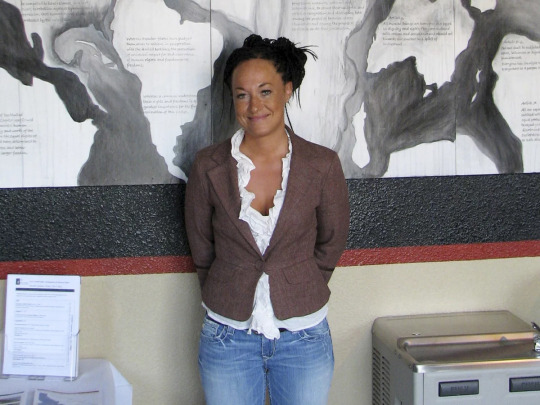
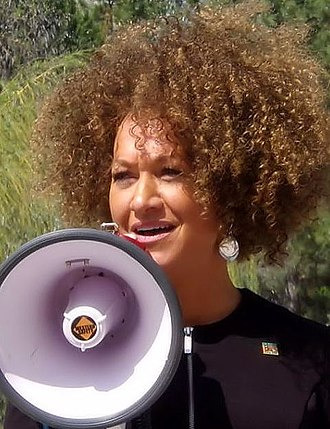
This is Rachel Dolezal, who legally changed her name to Nkechi Amare Diallo. Dolezal is a white woman who identifies as black and insists that she is transracial. Growing up, her religious white parents adopted four black babies, claiming that they "saved them from being aborted", and routinely delivered strict punishments to their kids including Dolezal. Dolezal does not seem to have a good relationship with her parents and, based on interviews, wanted to distance herself from them and distance herself from rural white culture.
"I've never questioned being a girl or woman, for example, but whiteness has always felt foreign to me, for as long as I can remember. I didn't choose to feel this way or be this way, I just am. What other choice is there than to be exactly who we are?"
She apparently "passed as black" for several years before her parents came out and said that she was white and is identifying as a black woman, and she was asked in a TV interview if she was African American and responded with "I don't understand the question". She taught Africana Studies at Eastern Washington University. She crafted a fake story in growing up as black and has argued that she experiences race-based related hate crimes. She darkens her skin and gets perms and started using hair products she observed her adopted black sibling to use. She lied about her father being black and lied that her black adopted brother was her son.
I hope that as details of Dolezal's story are read about, we are able to understand that tanning white skin does not make someone a black person, that blackface is wrong and racist. I hope we recognize that what makes someone black isn't a collection of racial stereotypes, isn't based on feeling a kinship with black people more than with white people, and that being black isn't based on not feeling a connection with white culture. I hope we understand that a black person cannot identify out of racial oppression, and that a white person cannot identify out of white privilege.

Jewel Shuping, age 38 now, was born healthy but dreamed of being blind since age 13. She stated her mother would tell stories about finding her walking down dark hallways at age 3, and mentioned that by age 6 the thought of being blind comforted her. When she was a teenager, Shuping bought a white cane and learned to read braille, becoming fluent in it by age 20.
She claims to have asked a psychologist to pour bleach in her eyes so she could fulfill her lifelong dream of being blind, and that the psychologist "understood her" and agreed to do so after giving her numbing eye drops to help with the pain (which was not ultimately helpful). She deliberately waited to seek medical attention so doctors were unable to save her eyesight. Gradually, over the course of six months, she became blind.
What Shuping has is considered a real mental health condition called Body Integrity Identity Disorder (BIID), a rare condition in which people who are born without disabilities believe with conviction that the should be disabled. There is another name for this in political activist circles, termed "transableism".
"I went blind on purpose, but I don't feel it was a choice."
Several other people with BIID are pretending to be paralyzed to use wheelchairs, with many not being driven to the point of causing harm to themselves to become disabled but instead living full lives faking being disabled.
I hope that as details of the stories of people pretending to be disabled are read about, we are able to understand that feeling like oneself should be disabled is an incredibly serious mental health condition and does not really mean that a person is "disabled inside". I hope we recognize that identifying as disabled does not make someone disabled, and that feeling a kinship with disabled people or a comfort in the thought of being disabled does not mean a person truly is or should become disabled. I hope we understand how people with mental health disorders claiming to be disabled can place further strain on resources and accommodations provided to disabled people. I hope we understand that inflicting pain, disfigurement, or physical altercations on healthy people to "help them physically match how they feel" is an inhumane way to treat a mental health condition.
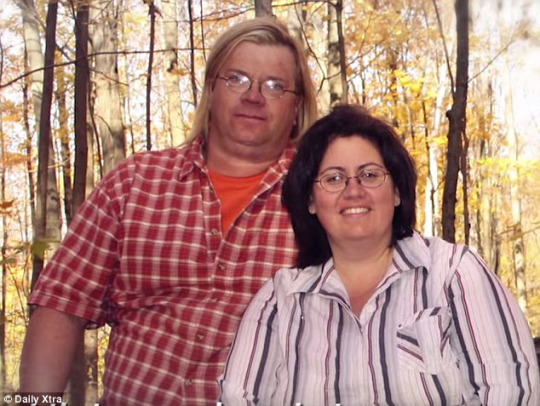
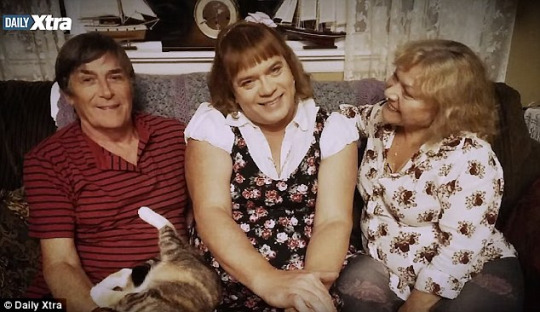
Paul Wolscht, who changed his name to Stefonknee Wolscht, was married to a woman for over 20 years and fathered 7 children before deciding to live life identifying as a six year old little girl. Living as a six year old little girl allows Wolscht to escape depression and suicidal thoughts because Wolscht gets to now play - even when in jail in solitary confinement for nine days for an undisclosed reason.
“If I’m six-years-old, I don’t have to think about adult stuff.”
Wolscht still drives and drinks coffee, but does so feeling and identifying as a six year old.

Emile Ratelband, age 69, petitioned the courts to allow him to change his age to 20 years younger because he "does not feel" 69 years old. Ratelband has argued that he did not feel comfortable with his date of birth, that age 69 did not accurately reflect his mental state, and that at age 69 he experiences limits.
“When I’m 69, I am limited. If I’m 49, then I can buy a new house, drive a different car,” he said. “I can take up more work. When I’m on Tinder and it says I’m 69, I don’t get an answer. When I’m 49, with the face I have, I will be in a luxurious position.”
Ratelband even asserted that doctors have told him he has the body of a man 20 years younger, and he said that he was willing to renounce his right to a pension. He argues that if people are able to legally change their sex on documents, there is no reason why he should not be able to change his age.
I hope that as we read these stories of people identifying as a different age, we are able to understand that feeling like you are 20 years younger or 40 years younger does not really make you that age. I hope that we understand that even though identifying as a different age might help avoid suicidal thoughts, being discriminated against on dating apps, or denied resources, it does not really change biologically what is. I hope we understand that there are also broader societal and legal consequences to being able to legally change one's age. That an adult might identify as a certain age to trick kids into trusting them so they can sexually abuse them, and/or that allowing an adult to legally consider themselves a different age would make it easier for adult predators to gain legal access to kids in environments in which they would normally be socially and legally discouraged from being in.
#trans#trans identity#transgender#trans pride#trans people#LGBTQ#lgbtq community#gender#transage#transabled#transracial#racism#ageism#sexism#ableism#disability rights#gay rights#LGB#women's rights#elder rights#mental health
808 notes
·
View notes
Text
Saying being trace is racist is like saying being transgender is sexist. I get it, new things may make you uncomfortable, but you need to stop with your bias. Trace individuals aren't hurting anyone, the same way Transgender people are not hurting anyone.
Heart breaking to see so many tracephobic Trans people.
262 notes
·
View notes
Text
Hey. If you’re doomscrolling in this tag, stop. Drink some water. Go look at something you actually want to. Remember, no one in their right mind is going to accept these people, so stop subjecting yourself to racism, ableism, transphobia, etc when you could be doing something better. These people are against recovery, so if you really want to piss them off, the best way is to be kind to yourself.
#radqueers piss off. idc if i’m crosstagging your community literally should not exist#radqueer#transabled#transrace#transracial#transage#transid#transx
977 notes
·
View notes
Text
THIS BABY IS NOT SAFE!!!
wtf?!?!?! i truly hate trans-racial adoption. the horror stories i've heard.... LAWD!!!
188 notes
·
View notes
Note
Hi!! So, this has probably been answered in interviews, but as somebody in my late 20s who like JUST watched TNG: is there a reason the show dealt so often with themes of the sci fi equivalent of transracial adoption? There's Worf's whole arc, "Suddenly Human", and several other episodes where the theme of being adopted by someone whose experience in the world does not match one's own is explored with great depth. Was this in the news a lot when the show originally aired? Was there someone in the writer's room who was living this experience?
First of all: when Michael Reaves and I wrote "Where No One Has Gone Before" for ST:TNG in 1987, the formal "writer's room" concept was only just beginning to coalesce, here and there, out of the old producer/senior writer/staff writers structure. As was usual for freelancers of that time, our screen agent simply called the TNG offices and got us an invitation to go in and pitch our idea to Roddenberry and one or more of the senior producers. When they liked what we had, we were asked to submit a written outline. Then, after some notes from Roddenberry and Herb Wright (our story's producer), we were told to go to script. But there was no group/cooperative “breaking out” of the script’s scenes, or idea-sharing, such as you’d routinely see in a room today. Michael and I just went home and wrote the script, turned it in a couple of weeks later, and got paid.
In the seasons that followed, something corresponding to a room did begin to come together at TNG—mostly because it had no choice but to do so. Within its first couple of seasons, TNG had acquired such an awful reputation for the way it treated its pitching freelance writers—including wildly arbitrary notes and even uncredited, secret rewrites from Roddenberry's lawyer—that almost no one with Guild qualifications wanted to bother trying to write for Trek any more. (This is why ST:TNG became one of the very few series operations in Hollywood to start accepting pitches from non-Guild members. See the article here for some background on the situation.)
All of the above being the case, I have no real idea of what the staff writers / nascent ST:TNG room might have been thinking about transracial adoption, or when... especially since later in 1987 I relocated to the UK and then to Ireland, to live with @petermorwood. The move took me somewhat out of the US TV loop, and turned my attention more toward film and TV work (and books, of course) in Europe.
The right person to ask about this—and it's a pity he has no presence here—would be Ron Moore. If anybody has an answer to your question, I'm betting Ron would. It's possible the subject's come up in some interview with him, though, so you might want to look into that.
Anyway, sorry not to be able to be of more help.
161 notes
·
View notes
Text
Since the most popular PRAT terms are all stolen, I (mod Adam) decided to make flags for the actual definition of these terms to try and take them back :)

Transage - Age regressors, dreamers, and chronosian people who prefer the term. Can also apply to those who feel sort of “age stuck” due to trauma or neurodiversity.
-
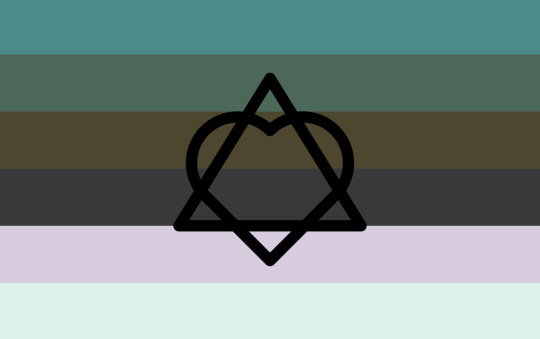
Transracial Adoptee - A person of one race or ethnicity adopted into a family of another race or ethnicity.
-

Transspecies - Nonhumans or alterhumans who prefer the term.
-
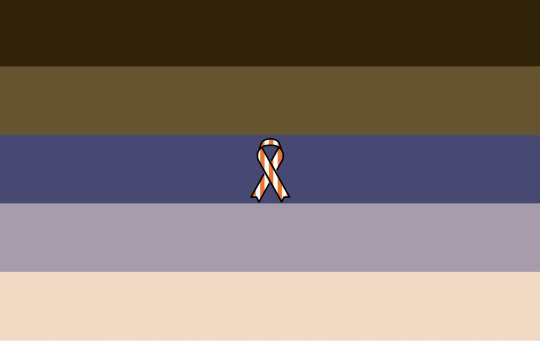
Transabled - People with BIID who prefer the term.
-
‼️ ALL THESE FLAGS ARE ANTI-PRAT ‼️
#this is probably the only time you’ll see flags posted here#mod adam#anti radqueer#symbols are: axolotl (tribute). adoption symbol. transspecies symbol (symbol was not made by prats). and biid ribbon#alterhuman#nonhuman#biid#bid#body integrity identity disorder#body integrity dysphoria#transracial adoptee#transracial adoption#age regression#age dreaming#chronosian
186 notes
·
View notes
Text

★ Racespike ★
A trace label where one primarily identifies as a certain race, but occasionally experiences "spikes" to another.
#racespike#transrace#transracial#diarace#diaracial#trace#rq 🌈🍓#radqueer coining#radqueer#pro rq 🌈🍓#transid coining#transid
87 notes
·
View notes
Text
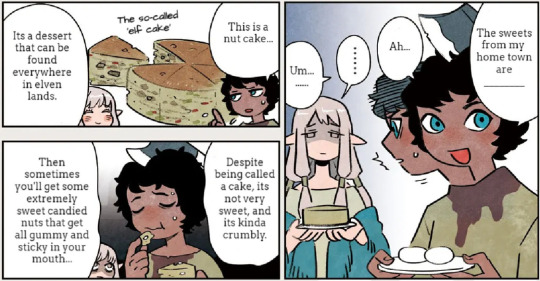
"if your white mom is racist to you it's over for you you're done for they'll invent new mental illnesses for you" -ancient philosopher's adage
#from one of the daydream hours iirc#the thought kui ryoko puts into portraying kabru's upbringing is like. literally just a solid condemnation of transracial adoption#dungeon meshi
101 notes
·
View notes
Text
NexoWhite Coining!


Nexowhite is a transwhite term where one is transwhite in a way that is nonhuman or unlike the traditional white person on earth! This could be used for a number of things, like being a pony from MLP whose fur is white, or being an alien from a different planet whose species skin color is white!
The stripes are all different skin colors ofc! I tried to stay as light as possible but I adore gradients so I did go darker on the top one! And the wand symbol is to show the magical / nonhuman-ness of this term!
I put no dni on my terms and anyone can use it! Radqueer, anti, blankqueer, whatever! I don't mind, because terms aren't just terms, their identities! And we don't police identities in this household!
#transid please interact#transx safe#transx#transid safe#transid community#pro transx#transid coining#transid#pro transid#transx coining#transx community#transx please interact#transx pride#transid pride#transwhite#nexowhite#pro rq 🌈🍓#radqueer#diaracial#transrace#transracial#diarace#pro diarace#radqueer community#rq community#rq please interact#radqueer safe#rq safe#pro radq#radqueers please interact
63 notes
·
View notes
Text
📚That Time There was a Transracial (Trace) College Course📙
Okay so I've been going down a bit of a rabbit hole today and felt compelled to share my findings. I clearly remembered that, off the back of Nkechi Diallo's forcible outing as trace in 2015, a couple years later there was a smaller scandal related to a college course that delved deeper into this idea on an academic level. I remember thinking, even though at the time I was against being trace, that it would have at least been interesting to attend. There are only a few reactionary articles from mid-2017 reporting on it, as the course has been scrubbed clean from the website of the Rhode Island School of Design. But thanks to the power of the Waybackmachine, I was able to take a look at it!

The faculty who taught the course is named Joon Lee, a Korean-American queer transsexual! Unfortunately I still haven't been able to pinpoint if he considers himself trace in some way, although he appears to have in-depth studies on black feminism, so it's possible that's related in some way? Just pure speculation. Thankfully he still works there even though this particular course is no longer offered. Here's his website!
But what's interesting is that this wasn't a new course in 2017; I found the same class (although called something else) in a course list from 2009-2010 and even one as far back as 2005-2006!!!
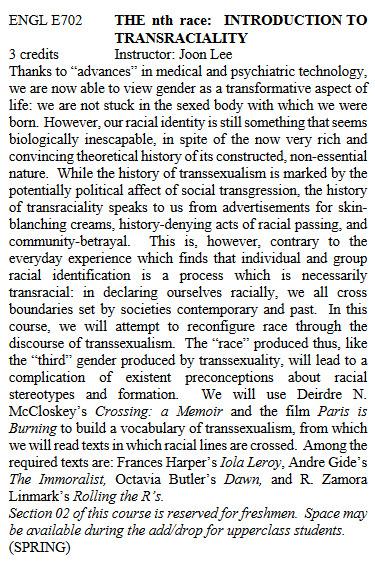
I don't really have a conclusion to this little deep dive except I'm sad I wasn't born early enough to attend this class. 🫠 These are some really interesting concepts I'd love to see actually discussed metacontextually and it's upsetting this was being talked about as early as at least the mid 00s but then got roped into the tracephobic hype.
74 notes
·
View notes